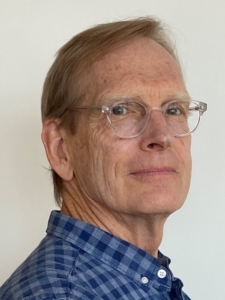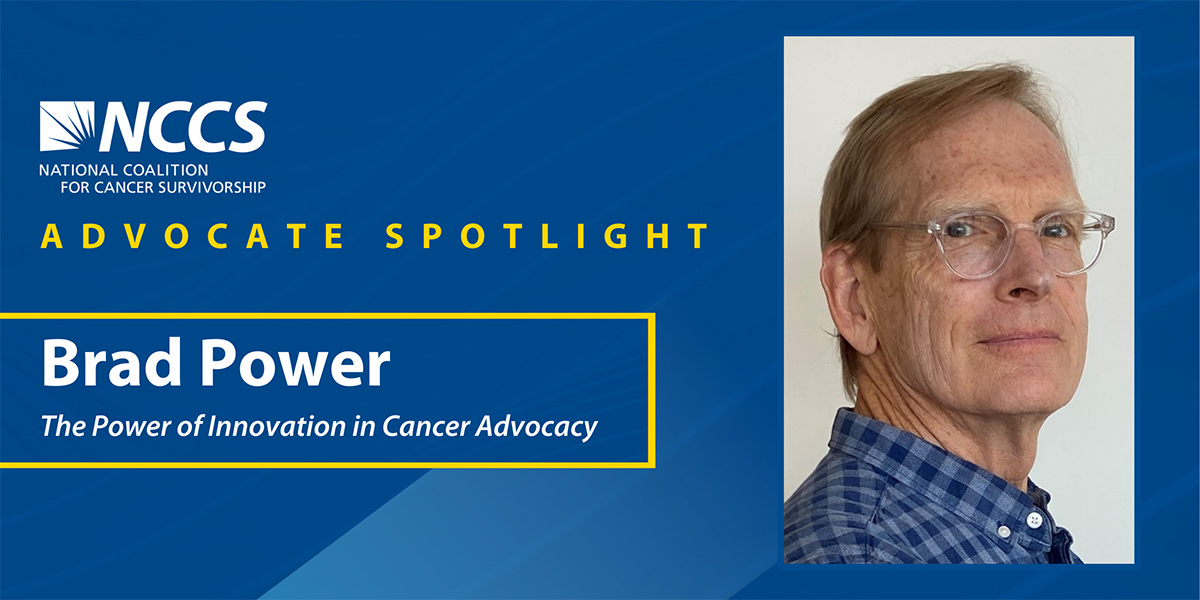Brad Power: The Power of Innovation in Cancer Advocacy
 Advocate Spotlight April 2022 – Brad Power
Advocate Spotlight April 2022 – Brad Power
Brad Power was a process innovation researcher and consultant with more than 35 years of experience, as well as an author of more than 75 articles for the Harvard Business Review, when he was diagnosed with lymphoma in 2018. After successfully completing a standard course of chemotherapy, he has no evidence of disease.
While attending a Harvard Medical School conference on personalized medicine, Brad discussed his experience as a patient. Many attendees eagerly told Brad that he had a voice. It was then that he realized that advocacy was his calling.
Brad resolved to focus his skills and experience on accelerating innovation in cancer treatment. His experience working with large companies made him question whether incumbents would drive big, disruptive process changes as quickly as patients needed. Brad decided to be a part of the solution by helping to make advanced cancer patients who engage in solving problems available to others. He also raised awareness of startups that “disrupt” the health care system to educate patients, help members of the cancer community navigate the system, and foster a sense of community. Brad currently explores how Web3 — a decentralized version of the Internet — can redirect power from institutions to patients.
Brad learned about NCCS in 2019, when Randy Broad, a lung cancer advocate, introduced him to NCCS Vice President of External Relations Elena Jeannotte. The two discussed ways he could get involved in the organization. “I want to support and connect with patients who are activists in their care, and by driving better outcomes for themselves, also show the way for others to follow,” Brad says.
Two years after his diagnosis, Brad learned that his friend, Bryce Olson, had “hit a wall in keeping his metastatic prostate cancer at bay.” Brad suggested bringing together a diverse crowd of experts for a hackathon — a collaborative effort to find the best treatment option for Bryce — that ran from December 2020 to March 2021. The collaborative effort achieved its goal to help Bryce and his medical team decide on his best next treatment. The PSMA-targeted radionuclide therapy which was chosen was not on Bryce’s list of treatment options going into the hackathon. The main benefit of the hackathon to Bryce and his medical team was greater confidence in that selection, and the consideration and upgrading or downgrading of other options, which may be useful if a next round of treatment is needed.
Brad followed this effort with a hackathon for Linnea Olson, a lung cancer patient, and another for Kasey Altman, a young woman with a rare cancer. His hope is to make hackathons available to many more patients facing complex treatment decisions. Brad recently launched Prostate Cancer Lab with advanced cancer patients, Brian McCloskey and Rick Stanton, to help them scale the testing, locate treatment options, and collaborate with the experts who helped during Bryce Olson’s hackathon. Together, they engage in accelerating patient access to emerging diagnostic tools for clinical guidance.
Brad’s mission is to improve outcomes for cancer patients through technological and medical innovation. He’s driven by his belief that advocacy can lead to treatments that may extend patients’ lives. Brad is a founding member of ennov1 and an advisor to Alva10, Blue Note Therapeutics, 4D Path, Cancer Commons, Cancer101.org, and Rabble Health. Brad also actively contributes to the Personalized Medicine Coalition. After recently speaking with NCCS Advocacy and Program Manager Veronika Panagiotou, PhD, about his involvement, Brad looks forward to getting involved in more advocacy organizations that focus on equipping survivors with resources.
Brad’s message to survivors and those undergoing treatment is clear: “Get a second opinion. Get your tumor sequenced. Educate yourself about your disease. Advocate for yourself.”
Connect with Brad Online:
Twitter: @bradfordpower
LinkedIn: Brad Power
Website: CancerHackerLab.com


